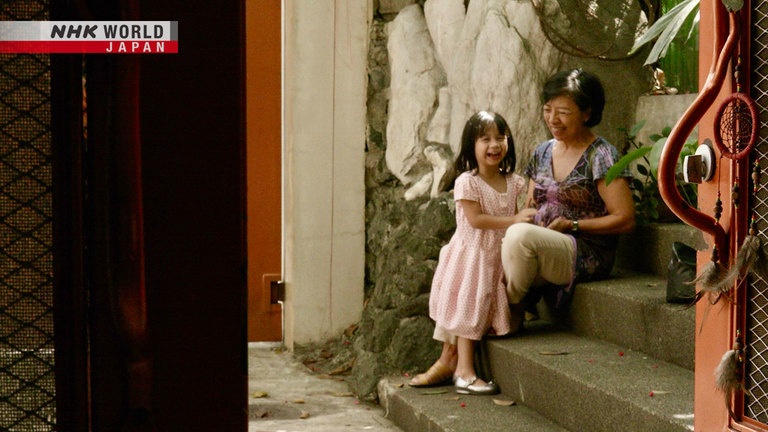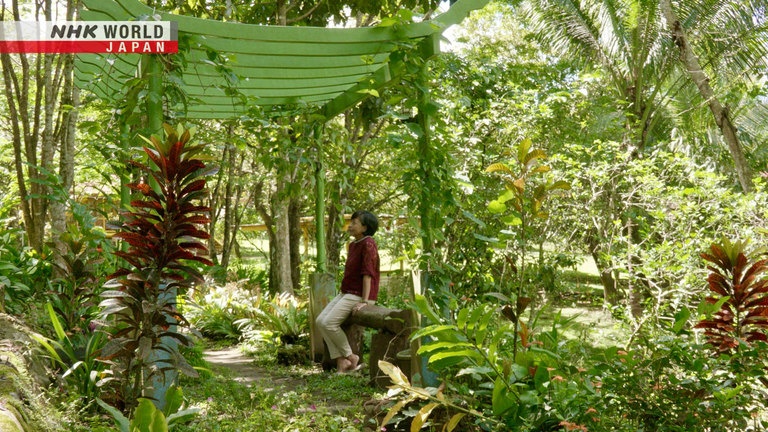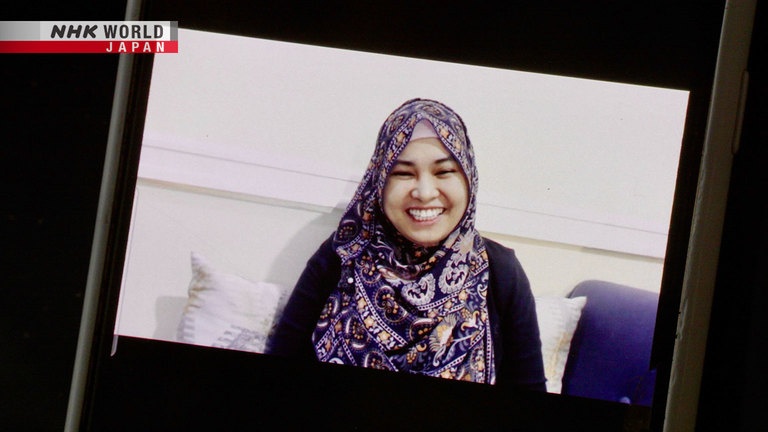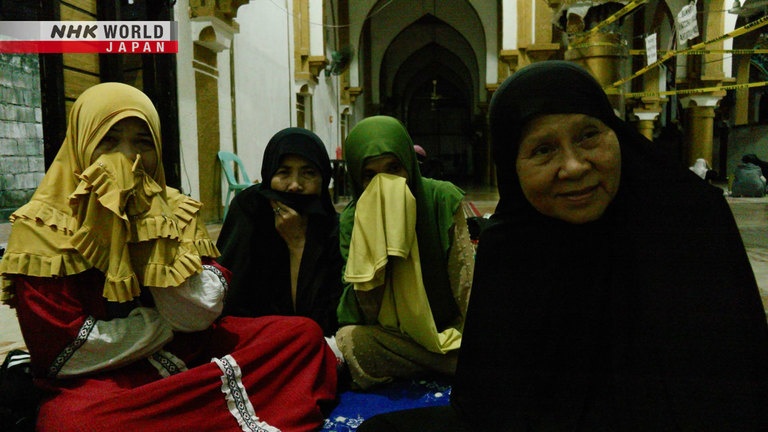Negotiators Create Hope: Miriam Coronel-Ferrer / Peace Negotiator
Miriam Coronel-Ferrer was the chief negotiator in ending the Mindanao Conflict in the Philippines. She talks about her way of ending conflicts by defining problems and building relationships.




Transcript
Direct Talk
The world suffers constantly from conflicts.
Historical, territorial, and
religious issues are complicated,
with no obvious solutions.
The Ramon Magsaysay Awardee,
Miriam Coroner-Ferrer!
Peace negotiator Miriam Coronel-Ferrer
helped to bring to an end
an armed conflict in the Philippines
that lasted half a century.
As a result,
she received the Ramon Magsaysay Award,
known as Asia's Nobel Prize.
HOPE, a beautiful four-letter word
pregnant with life's meaning.
The peace negotiations she's now involved in
include an Israeli-Palestinian dialog.
Understanding precisely what the conflict
is all about leads you to a better solution.
The kinds of principles and norms
that can stop a war.
And really to be able
to continue to co-exist.
At times with no hope
Miriam tells us about her approach
to ending conflicts.
Three hours' drive from Manila,
the capital of the Philippines
Miriam's family farm is located here.
Miriam Coronel-Ferrer
Peace Negotiator
So it helps me recover.
Actually lost several teeth during
the negotiations because of the pressure,
and I think that's how my body reacts.
I donated one, maybe
tomorrow's peace negotiations.
A peace negotiator
always faces great pressure.
Her first assignment
was the Mindanao Conflict.
Since the 1960s,
there had been an ongoing armed conflict
between Muslim forces seeking secession
and the Philippine government.
The conflict was ignited by
the government's Christian migration policy.
The Muslims who formed a majority of Mindanao
residents were dispossessed of their land
and relegated politically
and economically to marginal areas.
Their harsh life continued
during the long-lasting conflict.
We are the ones affected
by the conflict in Mindanao.
The war caused the poor to suffer even more.
Do you know what they ate?
Cardboard.
They soaked it in water and ate it just
to have something in their stomach.
Prices have gone up too high and
the economy is hopeless.
Oh, the power's out!
Even today, their lives are
still far from a full recovery.
This is how the poor live, enduring everything.
There's nothing we can do.
Understanding precisely
what the conflict is all about
leads you to a better solution.
If you have a wrong analysis,
you will have different assumptions
about the kind of solutions that they want.
I would not call it a religious conflict.
The Liberation Front,
the Moro Liberation Front, are your typical
anti-colonial liberation fronts
of the 1960s and 70s.
For a group of people that are still
staying in these parts of the country,
what they wanted was precisely to be able
to exercise the right to self-governance.
And that's politics.
That's not religion.
At university, Miriam studied war and peace.
Her thesis on peacebuilding
caught the attention of the government
and she was appointed as a peace negotiator.
When I became the chair of the panel
in 2012, like the chief negotiator
on behalf of the
government of the Philippines,
talking to the Moro Islamic Liberation Front.
When I was appointed the chair,
they were a little resistant to the idea
that there will be a woman
chairing the negotiations and they said that
we're not used to negotiating with a woman.
But that's what they said.
In the end, they got used to it.
Prior to the negotiation,
a draft was prepared,
outlining the conditions and demands
from both the government and the
Moro Islamic Liberation Front, or MILF.
When we started our negotiation,
they gave us a very thick draft agreement,
draft compact, very thick.
A lot of things were put there.
But because we had a very short
set of proposals that we gave them.
And when they saw it,
oh, it's so different from ours.
It's like the difference
between heaven and earth.
The gap is like between heaven and earth.
But what we did was to see,
let's see what's common between
your thick draft and our thin draft.
And we found some common elements.
And that common element precisely included
the acknowledgement of a different identity
and the legitimacy of the struggle
that they have fought historically.
And that was the starting point,
common point number one, actually.
Miriam also encouraged building relationships
within the negotiating team.
Even now, ten years later, she remains in
contact with the staff she worked with.
We were not always on the same page
in many things, I think.
It was very helpful that we had several women
at the head of our secretariat.
Like, I remember they would come at night
to consult on something
because they would still be working.
They'll go to my room
and they'll be in their pajamas!
So that really made it very easy,
working with a group of women.
The most important part
of the negotiation process
was achieving a "compromise" from both sides.
The big compromise, of course, was
for the Philippine government,
was to acknowledge,
the legitimacy of their struggle,
the history of their struggle,
and their identity as a Bangsamoro.
And then, on their part,
part of their compromise was precisely to
not ask for independence, but to find a
good way to establish their self-governance.
And also to renounce terrorism,
which they did,
because it was very important
for the government
not to drag the whole Muslim population
into this more extremist position.
A peace agreement was signed in 2014,
finally putting an end
to the 50-year conflict.
Miriam's parents were
very influential figures in her life.
This is a marker really.
This is my father and my mother.
Her mother and father
were very caring and sociable.
He's famous as a
defense lawyer for criminals.
So we had all sorts of people
coming into our house.
My father's friends, like police officers
and all of those characters.
And then our friends, very young university
students at the time, would sleep overnight.
My mother would feed everyone.
So it was like a meeting place
for everyone from different
political positions or ideological colors.
In the 1980s,
the People Power Revolution took place,
demanding the resignation
of the then President Marcos,
who had taken
his dictatorship to the extreme.
Former senator Ninoy Aquino, who criticized
the administration, was assassinated.
Miriam's father was asked to defend
a suspect in the assassination.
One day, her father gathered the family
and confided to them his emotional turmoil
over whether or not to conduct the defense.
Our family, most of our family members
were actually activists
against the Marcos government.
Even my mother.
He was his lawyer.
So for him, you had nothing
to do with the crime.
You're just
assuming your client is innocent,
whether from the left or from the right,
opposition or pro-Marcos at the time.
And I knew he wanted it,
because for him it was his profession
to be able to do that.
But for me who was doing all this activism
and he allowed me to do this,
I felt that if it was something
he wanted to do,
in the same way that
this is what I wanted to do,
and he let me do it, let him do it
right?
And that was a very
difficult time for us as a family
being politically divided
but still quite united as a family
in the sense that we respected each other.
So for me,
it's his calling the way
I had my own calling.
And we have to respect
each other's differences.
And I guess that's one trait of
a negotiator, or a mediator,
being able to respect these differences.
Not necessarily agreeing to it, but
but finding some space
for coexistence, right?
Even today, Miriam is
involved in various conflicts.
I'm working with a group
that's doing some work
in Jerusalem, between
Palestinians and Israelis,
and we meet like every twice a week.
But it's a long way to go.
It's a long way to go,
even how to heal the wounds
among the people themselves,
and not just on the politics side,
the top politics side.
Having to travel to conflict zones,
she finds great comfort in her family.
She has a family of nine
in three generations.
I cannot stop her!
She likes doing that so that's her passion.
And to me, just pray for her safety!
Miriam's way of thinking has been
passed on to her granddaughters.
Actually, I got this notebook
because my grandmother.
I usually just write my feelings down
to cope with them.
The relationship with those
in the immediate surroundings
is the first step in solving any problem.
Of course there are issues
that you just have to accept.
It is what it is, moments...
and
when that happens you have to think this
identifying blame and fault actually helps
or does it only make things worse.
When something like this
happens with my family,
when I encounter a problem with my family,
just accept that they incriminate and let go.
So, what is Miriam's motto?
Peace is possible, believe it or not.
If you keep on trying,
building peace in little spaces,
more and more until a lot of spaces
are actually within this,
what would say, a peace frame,
then we're getting there.
Maybe not perfectly,
but we're still making it better.
No matter how difficult the situation may be,
Miriam finds rays of hope and moves forward.